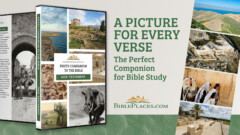For the past few years I’ve been enjoying the music of CityAlight both on a personal and congregational level (as we’ve added several of their songs to our worship services). They have just released a new album and, to mark the occasion, I asked them (Richard Thompson and Jonny Robinson) a few questions. I’ve interspersed their new songs throughout the interview so you can give them a listen. The album is available now wherever good music is sold or streamed.
Who or what is CityAlight? What can you tell me about the band and the church behind it?
CityAlight is a music ministry from a church in Castle Hill, Sydney, called St. Paul’s Castle Hill. The vision of CityAlight is to write songs with biblically rich lyrics and simple melodies for the Christian church to sing. We’re very pleased to admit there’s nothing particularly groundbreaking in what we do. There’s nothing especially new or unique or fashionable. We’re not on the forefront of anything and don’t pretend to be. (It’s probably better to be three hundred years out of date than three…)
Most churches around the world aren’t large. Some figures tell us that the average number in Australia is about 70. That means these are churches without large music teams or complicated sound equipment. These are churches with one guitar, or no guitar, one organ, one trombone, two singers – something like that. And we want to partner with those faithful congregations. Our vision is to resource them with simple songs. There is nothing on earth like the sound of a church singing, big or small, ancient or modern, skilled or not. The sound of a church singing has preceded almost every great revival in church history. The church is God’s witness and representative on earth. And is there any wonder that a tremendous power comes about when the representative voice of God in the earth is singing?
We have been writing songs together for about five years. The band isn’t fixed. It’s made up of whoever is available when the request comes in! We really see ourselves as a local church, first of all writing for our people, and also praying that God might take these songs out to any of His churches that might be helped by them.
I don’t think most people associate Anglicanism and modern worship. How does your Anglicanism factor into your songwriting?
This will inevitably be an over-simplification, but the Diocese of Sydney, of which we are a part, is an evangelical form of global Anglicanism with a commitment to the authority of Scripture, a personal relationship with Jesus, and a focus on mission, sharing the gospel both home and abroad.
To the question, yes, it’s fair to say, quite broadly, that the Anglican church has a very different relationship to modern worship than the Pentecostal church, for example. In large part this stems from the Anglican church’s long history of supporting choral and traditional music, an engagement that’s run over hundreds of years, and it can’t (and probably shouldn’t) be shaken off immediately. There’s a great beauty in those styles of music and we lose something when they get left behind. But on the whole Anglican churches in Sydney no longer reflect that sort of worship even if our reputation hasn’t yet caught up. On the average Sunday you’ll see the minister in a suit or a shirt and tie (occasionally shorts and a t-shirt in the Australian summers), the words of modern congregational songs projected onto a screen, a band with drums and guitars up front, and you’ll rarely see a prayer book.
In saying this, though, it does not mean we suddenly have a deep or familiar relationship with modern worship if by that you have in mind songs with a vaguely pop/soft rock sound and a verse/chorus/bridge structure. The Sydney Diocese is immensely careful to protect the truth of the gospel in its preaching and teaching. It values clarity of expression and faithfulness to Scripture. And that very often admirable caution has extended to music in the Diocese, too. We haven’t seen the easy acceptance of every hit congregational song going around or every development in musical style or the implementation of each technological advance because, roughly speaking, the church has aimed to ensure at every point that it won’t be compromising on something, a first principle. Attention to detail in these matters has kept the priorities as priorities, but it also results in a denomination making much slower progress in its implementation of and proficiency with modern music. This is intended to be a statement of fact, and individuals can decide where the balance ought to be.
At St. Paul’s, with CityAlight, we’re immensely grateful for the legacy of the Anglican church, their fidelity to Scripture, their commitment to clarity in preaching and teaching, their desire to reach unbelievers with the gospel, and their insistence on a personal relationship with Jesus. The mission of CityAlight is to write simple melodies with biblically rich lyrics and it doesn’t take much maneuvering to see how closely those values align with those of the Diocese. In being part of the Anglican Church, and particularly in a denomination informed by the principles of the Reformation, we’re honoured to join in with a very long history of people trying to serve God with the best of their music and teaching and writing and witnessing. We just see ourselves as getting in line and continuing on.
What can you tell me about the new album? What motivated or inspired it and what do you hope it accomplishes?
We began this project with an idea, and over the course of the year we became more and more convinced that our songs should be headed in this direction. The idea was joy. More specifically we had in mind Christian joy which we believed to be something quite distinct, and we wanted that notion to inspire, underwrite, and unify the songs written for this project.
We came across a sermon from the Baptist preacher Charles Spurgeon where he had said, ‘Are there not periods of life when we feel so glad that we would dance for joy? Let not such exhilaration be spent upon common themes, but let the name of God stir us to ecstasy […] There is enough in our holy faith to create and to justify the utmost degree of rapturous delight. If men are dull in the worship of the Lord our God they are not acting consistently with the character of their religion.’ In other words, the realities of Christianity provide us with so many opportunities for deep and lasting joy that if our worship does not reflect this, we ought to ask ourselves whether we are really singing about the Jesus of the Bible.
So we wrote to our team the following: ‘We are asking you to write songs that give our people the language and the opportunity to sing of this joy. It does not mean that your song must be titled ‘Joy’. You might not even use the word at all. What we want you to do is consider the deep and lasting realities of Christianity that provide occasion for true joy. And we want you to write about that.’
The songs resulting from this meditation are the six songs we finally settled on. As you will hear, they are not directly songs about joy. But the idea of Christian joy is where they began. Joy is the foundation and, like many foundations, is hidden but essential. We chose six instead of ten because it’s very hard to process ten, especially in smaller churches. So here are six simple songs for the church centred upon those remarkable realities of the Christian faith that are occasions for deep and lasting joy.
You seem to put quite a bit of emphasis on writing songs that are singable by the congregation. Why is this an important factor?
Yes, this is something we are very focused on. When writing for the church – particularly the small church – we are very keen to make sure our songs are accessible.
We don’t want to create any hurdles with our melodies. A lot of people are self-conscious of how they sound and whether or not they are a ‘good singer’. However, when it comes to church music, people are built up when they focus not on themselves, but on worshipping their God, and on absorbing truth that will stay with them through the week.
Complicated melodies, with large ranges, can distract from this pursuit. The more we can allow the melody to ‘get out of the way’ the better. You hear it in the room. Those songs that everyone loves – the ones that are sung the loudest – are often the ones with very simple, predictable melodies.
Simple melodies are often the hardest to write. We spend a lot of time on creating melodies that carry emotion and lead the church through the journey of the song.
Broadening our discussion a little, what are some of the trends in contemporary worship music that encourage you and concern you?
We’re very encouraged by a few of the new hymn-like songs that are being written. We can hear it when people have spent time on their song. In the past couple of years we, at St Paul’s, have been very blessed by a number of these songs.
But on the flip side there is also a trend in the church music ‘industry’ to write songs quite quickly. A new song or two a day is a pretty common benchmark for many writers. The reasoning behind this (we’re guessing) is that you continue to improve your craft and don’t get too stuck in any one song. Good songs can certainly be written that way. But, this method of writing is going to limit the kind of songs that come out. Certain songs just take time and work and reworking and meditation and reworking and discussion. Theology is rich and deep and our songs need to grapple with that. It is unlikely (though not impossible, it must be said) that a writer could dash off a song about God’s sovereignty or the mystery of suffering in an hour or two. In fact, there is the danger of arrogance where a person thinks they would be able to do that without serious thought with whatever ideas come easily to mind. Deep truths about the gospel take time to get a grip on and the songwriter must take the time to do it in order to bless the church. We are feeding the church. We need to feel the weight of that. What we put in the mouths of the body of Christ has the power to either strengthen a believer or distort their theology. We would argue that, because of the way songs stay in people’s minds, we have a responsibility just like the preacher delivering a sermon. In fact it could be argued that songs need even more care than sermons.
Our most recent hymn “Yet Not I but Through Christ in Me” took us 12 weeks to write. We dove deep into the idea of what it meant to have Christ dwell in us. What an incredibly profound, mysterious truth. It needed time. We wrote and rewrote the songs many, many times. We struggled for every word.
If there are any songwriters reading this, we would encourage you to slow down. Your songs will be richer for it.
If a pastor or worship leader approached you to ask which CityAlight songs they should add to their congregational worship, which three would you recommend and why?
That’s a tricky question because we are so close to these songs. But based on the feedback we have received from various churches, we would suggest these:
From album 1: “Jerusalem“
There are very few narrative songs in the typical Sunday playlist. We think a song like this adds a richness to worship in that it helps paint a vivid picture of the Christ moving toward and beyond the cross. When we grasp the magnitude of what he did – and what it cost – we can’t do anything but worship him!
From album 2: “Only A Holy God“
We heard recently of an underground church singing this song. They were encouraged by being able to sing one another:
Who else commands all the hosts of heaven
Who else can make every king bow down
Who else can whisper and darkness trembles
Only a Holy God
In the face of persecution, they were reminded that God is set apart – above all. We need not fear anything. We reckon that’s something we all could all do to be reminded of.
From album 3: “Yet Not I but Through Christ in Me“
This is an exploration of one of the greatest mysteries of the Christian faith. Having Christ in us calls together two apparently paradoxical ideas: we contend for the faith and we do it with Christ’s energy (Colossians 1.29, ‘To this end I strenuously contend with all the energy Christ so powerfully works in me’). Having Christ in us does not mean we do no more work, and neither does it mean we do it all. Rather, we contend and we contend with his energy. Even our final resurrection is made possible by the gift of Christ in us. He will bring us to glory. In our weakness he is strong, and he will complete the work he has begun. He himself is within us, leading us home, step by step. Every believer has been given this gift. It’s worth singing about!










